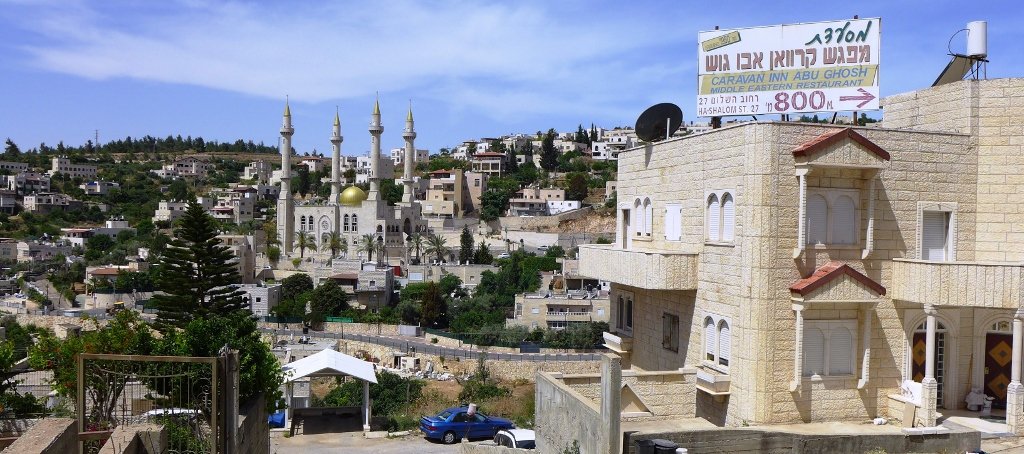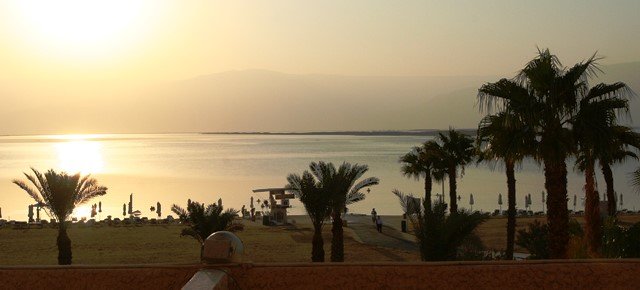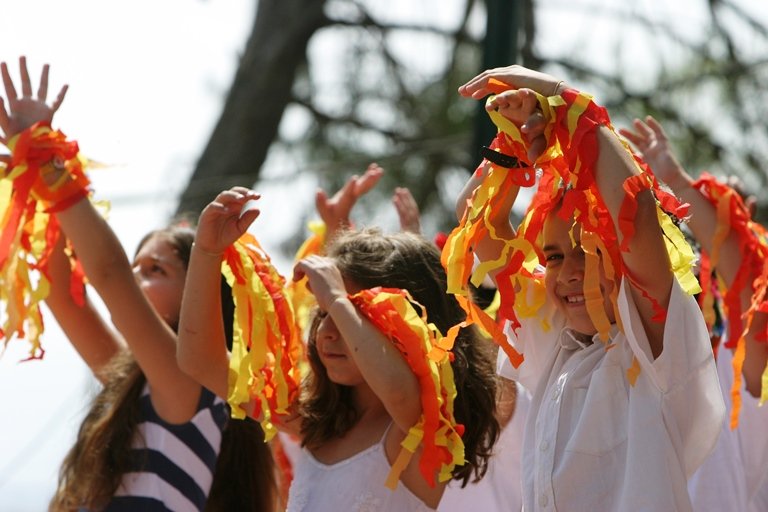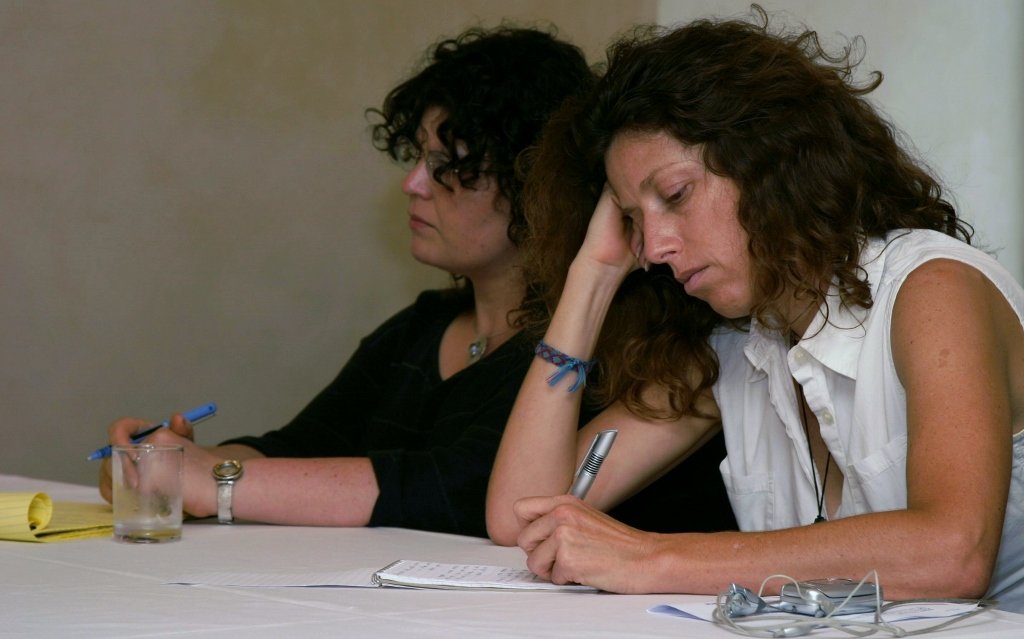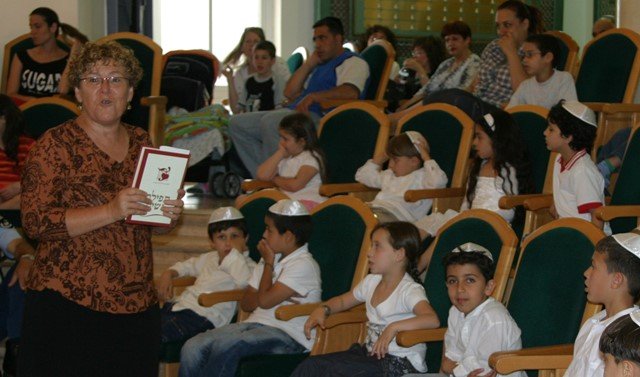Share This Story, Choose Your Platform!
Most tourist buses on the motorway in the direction of Tel Aviv pass by Abu Ghosh. The picturesque village nestles little more than ten kilometers west of Jerusalem in the Judean mountains.
The king of rock ‘n roll
Legendary is the Elvis gas station. Day and night the voice of the old rock star sounds through the loudspeakers. The owners of the gas station boast the largest Elvis Presley collection in the Holy Land. Since the mid-1990s, the “Abu Ghosh Music Festival” attracts thousands of visitors during the Jewish festivals of Shavuot and Sukkot.
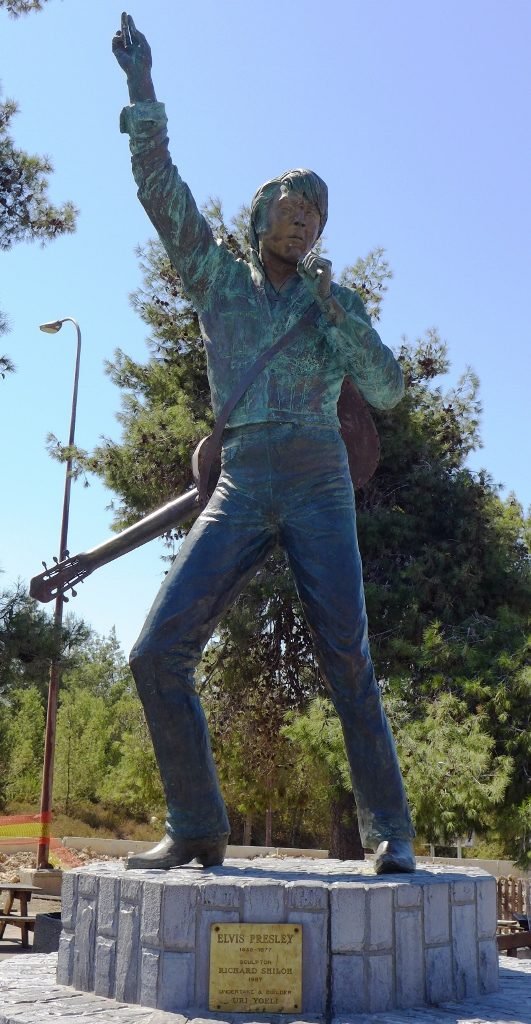
Among Israelis, the Arab town of Abu Ghosch is known and loved above all as the “mecca of culinary delights”. The oriental restaurants are legendary – foremost perhaps because they are open on Shabbat.
Israelites, Romans and Crusaders
At the time of the Old Testament, Kiryat Yearim was located here. The Ark of the Covenant has been here for two decades (1 Samuel 6-7) before King David transferred it to Jerusalem (2 Samuel 6). A modern Catholic church stands on the site today. It is supervised by French clergy.
The Romans had their 10th Legion stationed in the area a millennium later on. Richard the Lionheart allegedly threw his first glimpse on Jerusalem from Abu Ghosh. In the twelfth century, the Crusaders thought they had finally found New Testament Emmaus (compare Luke 24:13-35). That’s why they built their Church of the Resurrection here.
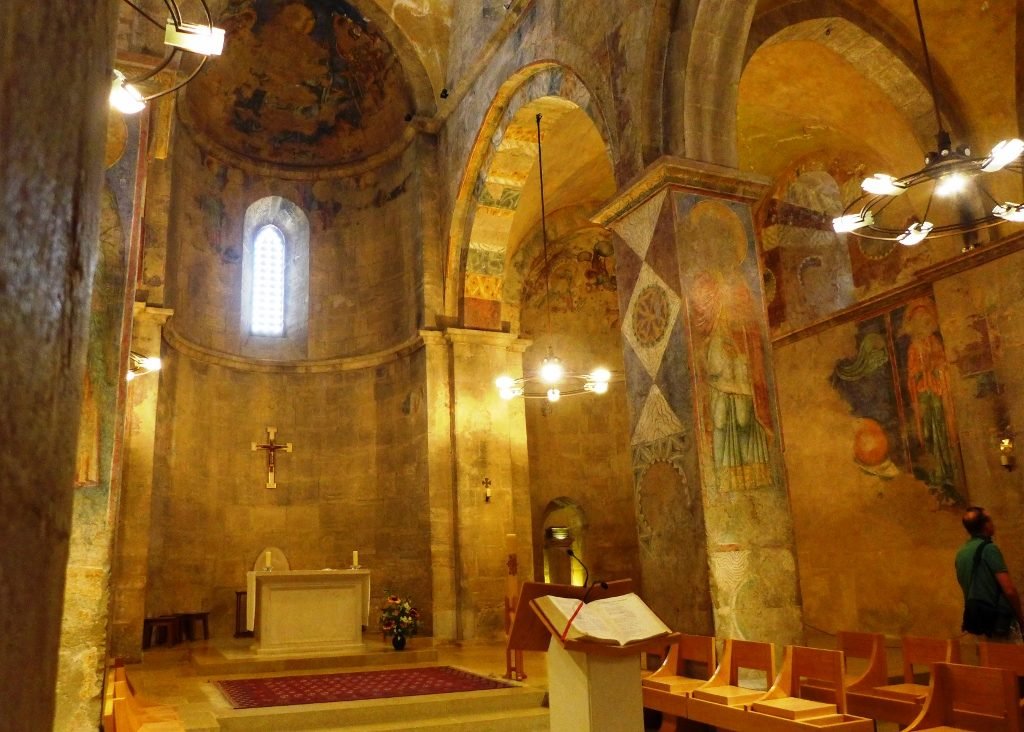
Gateway to Jerusalem
“Abu Ghosh controls the gates of Jerusalem.” This was not only recognized by former Israeli President Yitzhak Navon. The strategically important location at the west entrance of Jerusalem determines the history of the place. Whoever wishes to go up to Jerusalem has to pass Abu Ghosh. The village dominates the “Bab el-Wad”, the “Gateway to the Gorge” or “Sha’ar HaGay” as it is called today in Hebrew.
The old Abu Ghosh
This was also recognized by a Caucasian mercenary who settled in the area in the 16th century and gave the village its name. Subhi Salah, the owner of the restaurant “Ne’urah”, tells me the story of his tribe while I taste the lamb ribs. He mentions alongside his own Salah clan the extended families Ibrahim, Jaber, Abdul Rahman, Qteish and Qamaniye. The approximately 6,000 Muslim inhabitants are almost all descendants of the old Abu Ghosh. This has now been scientifically proven by a genetic study.
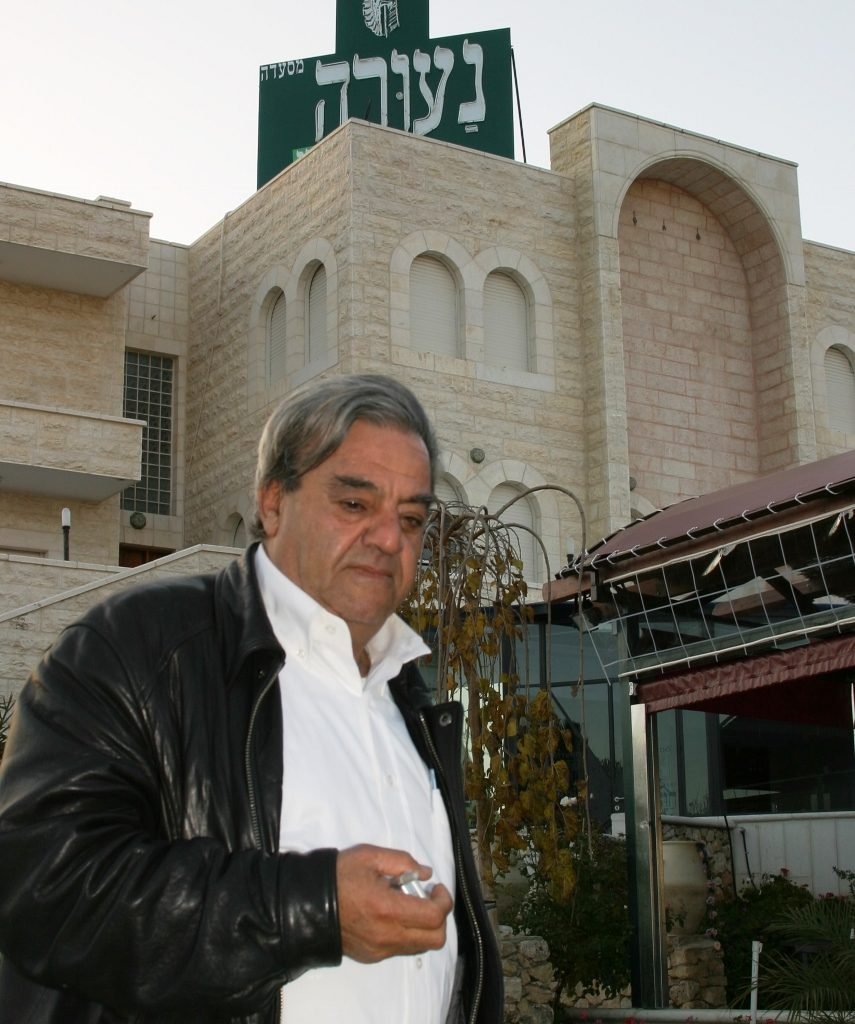
Hooligan, tax collector, highwayman …
The name “Abu Ghosh” translates as “the one, who is making a lot of noise”. Subhi Salah, also called “Abu Abed” after his eldest son, is writhing around. “They were not okay,” he tells about his forefathers and glances at me from the side. When he realizes that I enjoy robber stories, he willingly continues.
Over the centuries Abu Ghosh has made a name for itself as a nest of highwaymen. Whosoever wanted to go to Jerusalem, had to pay toll here. The people of Abu Ghosh dominated the surrounding villages. This obviously did not add to their popularity.
… and girl robbers
It is being told about the forefather Abu Ghosh that he robbed for himself a new bride every year. No beautiful girl in the Judean mountains was safe from him. This went on until one day he and his pack came across the angry mother of a girl near present-day Latrun. She obviously knew how to fight back against him.
Laughing, Subhi Salah tells that the matron ran completely naked towards the men of Abu Ghosh. That behavior hurt the girl robbers so much in their honor that they asked the lady to dress. “As long as there are only women in the neighborhood,” the angry mother answered, “I do not need to dress.” And: “People who rob girls cannot be men.” Allegedly, the bandits from Abu Ghosh withdrew deeply embarrassed. As everywhere else in the Arab world, honor plays an important role in Abu Ghosh until today.
Turks, Brits and Israelis
Under Ottoman rule the mukhtar of Abu Ghosh became the tax collector. He has dominated the surrounding villages. He is said to have been governor of Jerusalem towards the end of the Turkish era.
At the time of the British mandate ruled the wise mukhtar Ali Salah Dschaber. During the turmoil of the 1920s and 1930s, the village maintained good relations with the neighboring Jewish kibbutzim Kiryat Anavim and Ma’aleh HaHamishah. Likewise in the Israeli War of Independence.
“Thanks to a brilliant mukhtar, Muhammad Abu Ghosh, we were allowed to stay in our homes. Abu Ghosh decided that we should not fight the Jews. And everyone in the village stuck to it.” More than 30 Arab villages in the area were destroyed at that time. Abu Ghosh still exists, “because he dared to be different.” Subhi Salah mentions not only Yitzhak Navon and Yitzhak Rabin when listing the friends of Abu Ghosh, but also their “far-right” rivals Menachem Begin and Yitzhak Shamir.
The Ashkenazi among the Arabs
The people of Abu Ghosh are proud of their history and proud to be different from other Arab Israelis. “We are the Ashkenazi among the Arabs,” smiles truck driver Musa Abu Ghosh, “we even look different.”
“The other Arabs called us traitors. They even blamed us for the death of the legendary Arab leader Abdul Qader al-Husseini. He fell in April 1948 in nearby Kastell. That’s why they hate us.” But: “If everyone had behaved like us, there would be no refugee problem today.” Abu Ghosh is a testimony that unconventional cooperation efforts pay off in the bloody clutter of the Orient.
A water wheel from Syria
Subhi Salah’s restaurant is called “Na’urah”. “Na’urah” is the name given to the giant water wheels that draw the precious water to the higher fields in the valley of the Orontes in Syria. In Hama, these water wheels are up to twenty meters high and centuries old. Their groaning singsong creates a constant background noise in the city, torn apart by massacres and civil war. And exactly such a water wheel stands in the garden of this restaurant in Abu Ghosh.

How does a “Na’urah” from Syria reach Israel? – Subhi tells that his clan, like the Syrian Assad family, owns supermarkets in the US. So it happened that one of his sons in America met Basil Assad, the favorite son and designated successor of then President Hafez el-Assad.
When the 31-year-old Basil died in a car accident in January 1994, the Arab friends from Israel took an active part in the suffering of the Syrian presidential family. Later, the Subhis were present in England at the wedding of today’s President Bashar el-Assad. The water wheel in the garden of the Na’urah restaurant in Abu Ghosh is a gift from today’s Syrian president. The waterwheel came to Israel via Jordan.
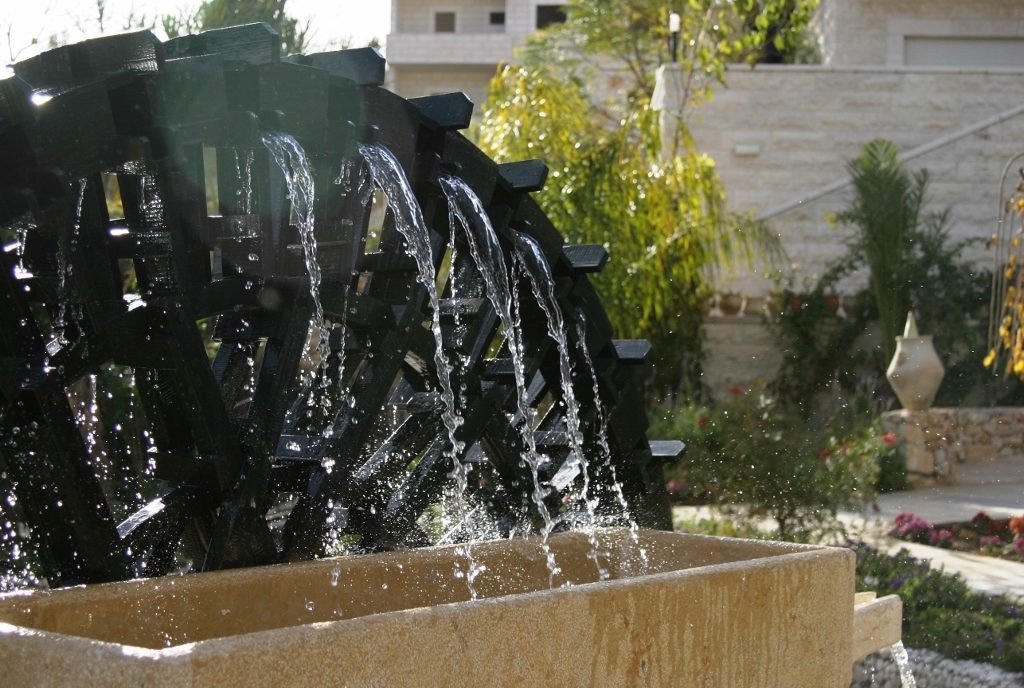
The well from which drinks
While Subhi Salah tells his story of the water wheel, Gideon Ezra is sitting at the neighboring table. The former vice-chief of Israel’s secret service obviously has no problem with the restaurant owner’s good relations with the Syrian dictator’s family. Ezra enjoys the sumptuous oriental food and cannot stop to praise the restaurant “Ne’urah” as an expression of unique Jewish-Arab coexistence. “That is typical of Abu Ghosh.”
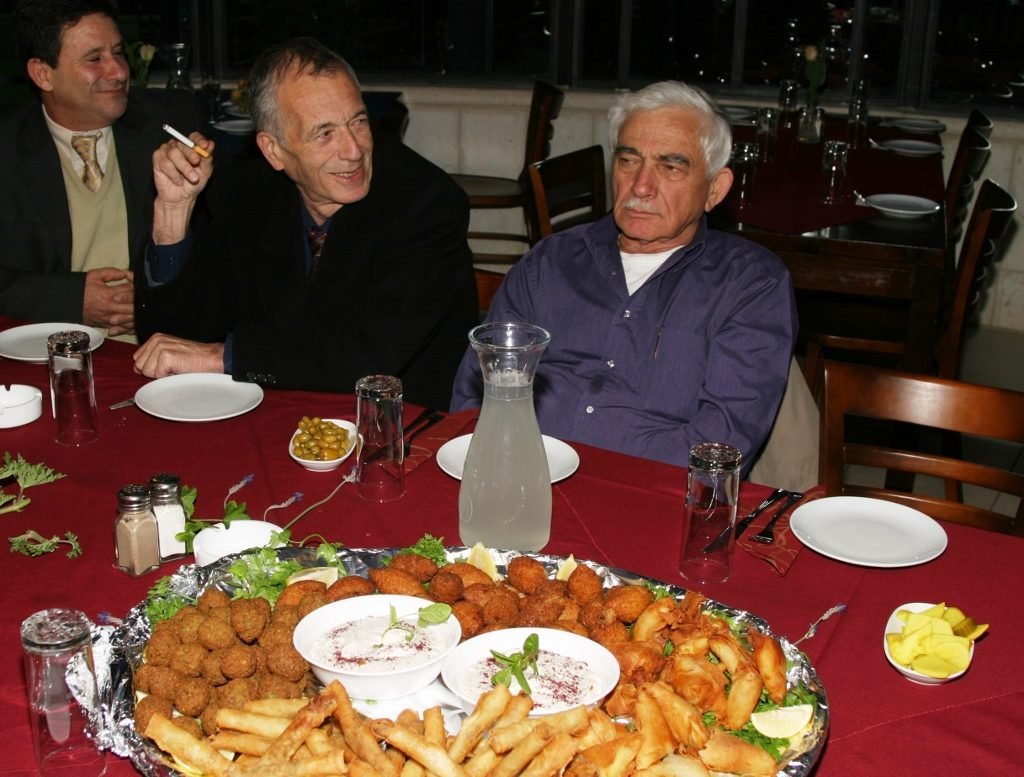
Subhi Salah describes the situation somewhat more sober: “My father was born here. I was born here. Here is our life.” With an ancient Arabic wisdom, “Abu Abed” sums up the secret of survival of the hooligan’s descendants on the Jerusalem-Tel Aviv highway: “You do not spit in the well you drink from.”


